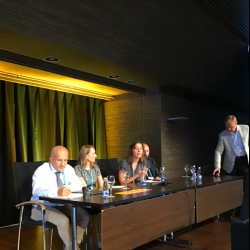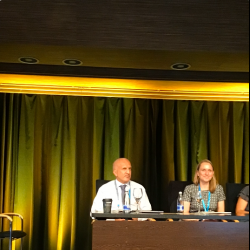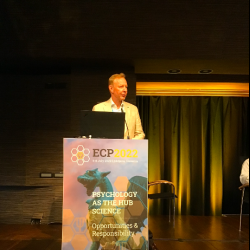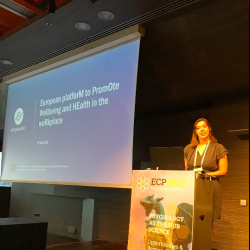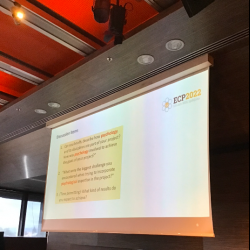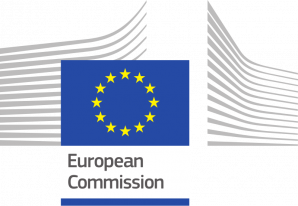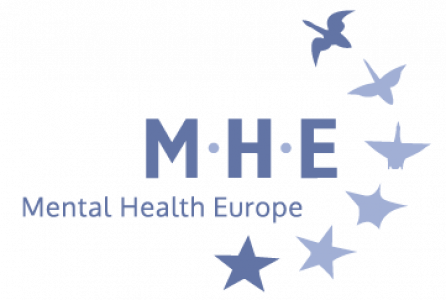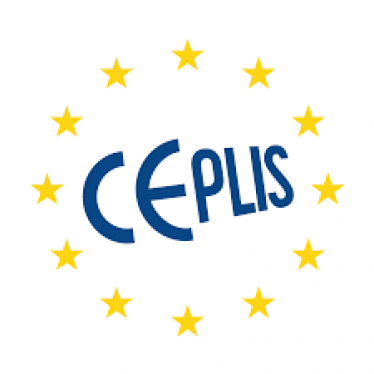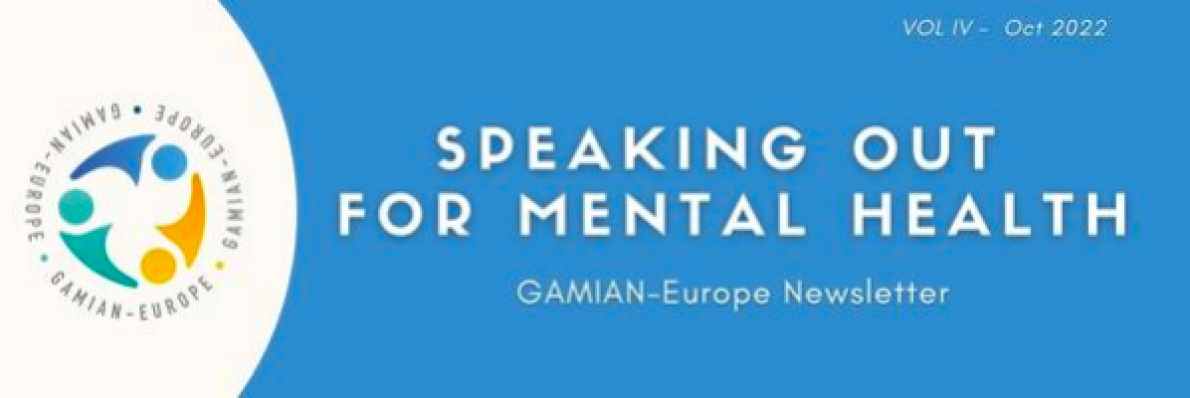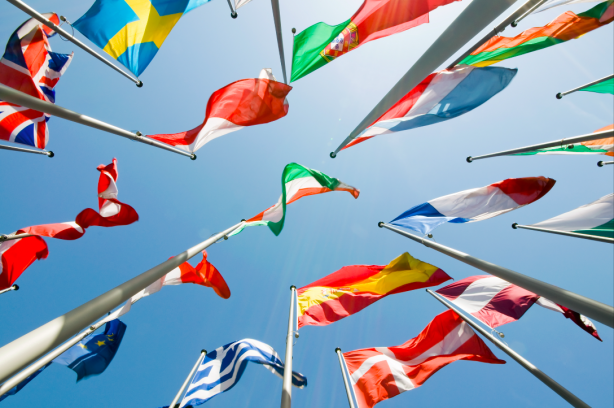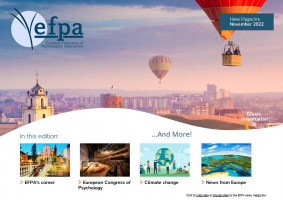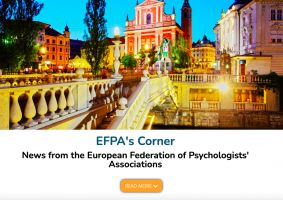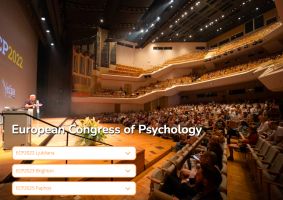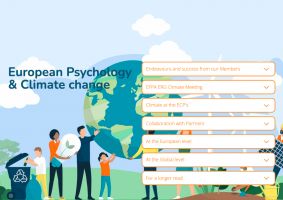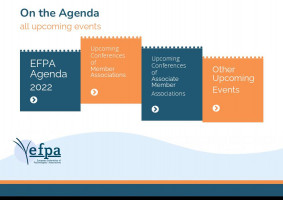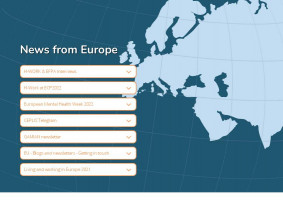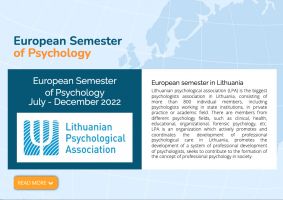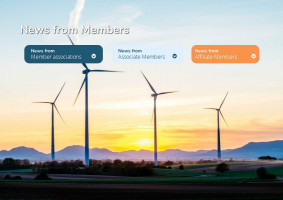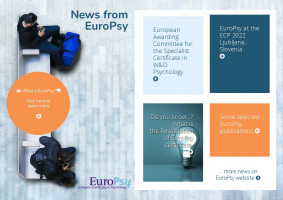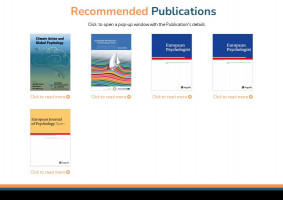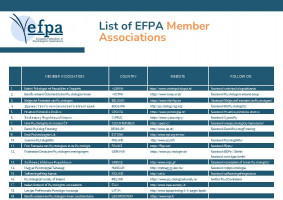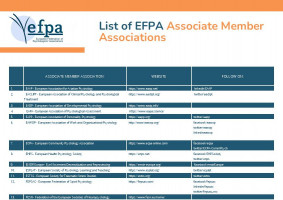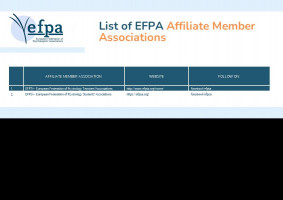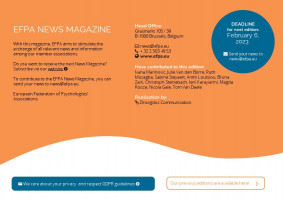-
Interview Karolinska Institute (KI)
Presentation of the team and role in the H-Work project.
1. Can you present us your team and the role of the members in the H-Work Project?
Karolinska Institutet (KI) is a member of the H-Work consortium. The Swedish university's team includes Emmanuel Aboagye and Anna Warnqvist from the Institute of Environmental Medicine. The project's principal investigator is Emmanuel, and Anna is a statistician who provides technical support and data analysis advice.
2. What is the role of your organization in the H-Work Project?
Karolinska Institutet (KI) will assist in the evaluation of intervention toolkits designed to promote mental health in public and private workplaces in the H-Work project. All interventions will be assessed for their effectiveness in terms of health and work outcomes, as well as their cost-effectiveness.
Presentation of the work done and next steps
3. What has your team accomplished in the project so far (results)?
Within Work Package 5 (WP 5), the team created templates to help with data collection on intervention activities and costs for each intervention implemented at the intervention sites. The team also contributed to the creation of a questionnaire for collecting data on objective organizational indicators prior to and after intervention implementation to determine whether the organization could afford the interventions within WP 3. Because organizations may implement multiple and/or multilevel interventions, the plan has been to heavily rely on academic partners at intervention sites to organize data on intervention activities and costs rather than collecting data from study participants through diaries. Thus, the academic partners have been extremely helpful in ensuring a comprehensive data collection process for economic data for each intervention.
4. What are you currently working on and what are the next steps?
Currently, our goal in WP 6 is to contribute to the development and promotion of an economic evaluation tool, which can be used as a standalone or in conjunction with other packaged tools to easily perform economic evaluation on interventions for promoting mental health from a business perspective. The tool will be integrated into the H-Work project's innovative and interactive platform or website, which will also include free downloadable resources on economic evaluation for mental health interventions. The organizational stakeholders involved in purchasing work health promotion interventions or in a position to decide (i.e., management, HR, OH providers) on occupational health and safety interventions are the target audience for this tool.
The team is eagerly awaiting the data for the Work Package (WP 5) deliverable on the economic evaluation of H-Work interventions. The team will collect data from various intervention sites across the EU and conduct statistical analysis aimed at evaluating the implemented interventions at various levels (IGLO) of the participating organizations. The team is also excited to contribute to the active dissemination of the H-work project's findings. We would like to participate in the publication of popular scientific results through appropriate channels such as journals, newsletters, and conference attendance.
5. What are your expectations regarding the outcomes of the project, after 2 and a half years of work? Has there been a change in the initial expectations?
The collaboration between the partners and work packages has been enriching and exciting. This was somewhat predictable, but you never know. We could have had more face-to-face consortium meetings to strengthen connections and networks, as well as work on ideas, but that was not to be. However, we cannot deny the importance of the project and what we have accomplished together. I believe the project concept, which began with a needs assessment and ended with organizations receiving the interventions they most needed, was spot on. We were only anticipating possible changes in outcomes. Let's say it's not long before we find out, because some of the participating organizations appear to be very interested in the project.
6. What are currently the main obstacles for your work in general and in the project?
There are not many obstacles. Of course, due to the project timelines, the deliverables for the economic evaluation may have to wait a little longer until some follow-up data is collected. Aside from that, we are on track to complete the deliverable in WP 5.
7. What has been (and still is) the impact of COVID on the work of your organization for the project?
COVID-19 came as a surprise. It dragged on for far too long, forcing all planned travel to be canceled. We held almost all our meetings online, but we could have held more face-to-face consortium meetings after the kick-off to strengthen our connections and networks. What the intervention sites have accomplished during the COVID-19 pandemic is nothing short of extraordinary. We greatly appreciate their efforts and contributions in ensuring that KI is not so much affected by COVID in terms of data for our work.
8. What is the biggest strength of your organization in advancing the project?We are a small team from KI, but we have a lot of help from the other work package members. Our organization's strength in moving the project forward stems from its expertise in research analysis, interpretation, and dissemination. In the evaluation of this complex multi-level intervention implemented across EU countries, we use the most efficient and innovative methods.
9. How do you think your organization and EFPA can collaborate?
It is important to communicate science. We believe that using the media and giving interviews to journalists is a unique opportunity to experience and share your scientific work with laypeople. We believe that we could collaborate with EFPA on communication activities and developing popular science reports for non-scientific audiences.
-
Interview Norwegian University of Science and Technology - NTNU team
Presentation of the team and role in the H-Work project.
1. Can you present us your team and the role of the members in the H-Work Project?
The NTNU-team belongs to a research group called Healthy workplaces at the Department of Psychology at Norwegian University of Science and Technology (NTNU). Embracing WHO’s definition of healthy workplaces as “….one in which workers and managers collaborate to use a continual improvement process to protect and promote the health, safety and well-being of workers and the sustainability of the workplace”, the research group are interested in what creates a healthy workplace and how to implement healthy workplace initiatives successfully.
The group leads and participates in a larger number of national and international research projects in the areas of occupational health psychology, health promotion and positive psychology, well-being, successful aging, healthy workplaces, healthy healthcare, leadership, and implementation and evaluation of interventions. One of our main projects now is the H-work project.
The NTNU-team for H-work consist of three members and we have a new post-doc coming in during the autumn 2022. NTNU have the responsibility for WP3, which is led by Marit Christensen and Siw Tone Innstrand. Marit is an Associated professor at the Department of Psychology, NTNU and have PhD in Work and Organisational Psychology on work and health in a changing world. Siw Tone Innstrand is a full professor at the Department of Psychology, NTNU and has a PhD in Occupational health psychology on work-home interaction. Both have an interest in what creates healthy workplaces and have been part of developing the ARK project a work environment and climate survey for the Norwegian university sector. ARK have been used by over 20 universities in Norway since 2012 and includes a database with over 55 000 responses. As part of the ARK project, we have conducted research on organisational intervention processes and how to create sustainable work environment and learning organisations. Karoline Grødal have worked as a researcher on the project since 2020. Her assignment ended this summer and she have brought here experience and skills from H-work into new tasks at the Norwegian Labour Inspection Authorities.2. What is the role of your organization in the H-Work Project?
The NTNU team is responsible for Work Package 3 (WP3): the H-Work Assessment Toolkit (HAT). This means that we are responsible for creating assessment tools for the needs analysis and quantitative effect evaluation surveys (baseline, post, and follow-up).
Presentation of the work done and next steps
3. What has your team accomplished in the project so far (results)?
So far, we have created a protocol for the needs analyses consisting of 1) focus group interview, 2) semi-structured interviews, 3) contextual measure, and 4) a plan for a stakeholder meeting and action plan. The needs analyses have now been conducted successfully among 11 different interventions sites in the following countries: Italy, the Netherlands, the Czech Republic, Spain, and Germany, and provides the basis for the choice of interventions tested in the H-work project.
The outbreak of COVID-19 forced us to find new digital solutions on how to collect the participants needs for intervention as face-to-face interviews was not possible in some of the organizations. Hence, we have created guides for how to conduct digital interviews and cognitive mapping exercises.
Our team has also been involved in many of the other work packages by contributing to for example process evaluation, meta process evaluation of the needs analyses, and a communication plan. Together with other partners in the project we have also written publications and presented knowledge from H-work at several conferences.
4. What are you currently working on and what are the next steps?
We are currently waiting for the data from the follow up data collection for effect evaluation of the interventions on mental health. The next step will be to analyze and validate data from the pre, post and follow-up data on mental health exploring the effect of the interventions.
We are also preparing symposia at EAWOP and SIOP conferences to be held this spring based on the results from the H-work.
As Norwegian partners in an EU-project we applied and got supplementary funding from the Norwegian Research council to develop an e-learning course, e-H-work, based on the results from the H-work project. The e-H-work-project is in its final stages and a prototype in Norwegian and English of the e-learning course will be ready in the beginning of 2023.
We are currently working on a policy brief on the role of participation in organizational intervention processes together with USFD and EFPA.
Together with partner from UVA and UFSD we are working on guidelines for how to conduct an intervention process for mental health and well-being in SME’s and public workplaces for the H-work platform.
5. What are your expectations regarding the outcomes of the project, after 2 and a half years of work?
Our expectations are that our work will have an effect on the mental health and well-being on the individual level, organizational level and on the societal level. We hope that new knowledge from the project will benefit leaders, HR, policy makers in the filed of mental health and wellbeing. The COVID-19 pandemic has revitalized the view of the importance of working with mental health in organizations. We hope that the H-work project will help to shed light the need for mental health promotion and reduction of stigma and give some answers to how to deal with the challenges Europe and the rest of the world are facing.
We have enjoyed the collaboration and knowledge exchange with the other partners in the project and hope to continue the fruitful work in the future in new project and papers.
6. There has been a change re the initial expectations?
Because of the COVID-19 pandemic we have not been able to travel and have face-to-face meetings. However, it was very rewarding to meet at the EAOHP conference in Bordeaux in 2022 having a writing workshop where we experienced a lot of brilliant ideas, engagement, and inspiration.
7. What are currently the main obstacles for your work in general and in the project?
The COVID-19 pandemic has postponed the data collection and we are still waiting for data to start writing papers and finalize the required deliverables for EU-commission.
8. What has been (and still is) the impact of COVID on the work of your organization for the project?The data collection is delayed; however, we have managed to be innovative, finding new digital solutions in a way that we can continue our work as planned. We believe that COVID-19 pandemic has put emphasis on the need of our research and intervention work on mental health and well-being at work.
9. What is the biggest strength of your organization in advancing the project?
Our competence, knowledge and experience from the ARK-programme have provided us with an extensive knowledge base on how to implement organizational intervention processes for mental health in the workplace.
Moreover, the participatory approach and collaboration between the parties in work life, which is represented in one of the pillars in the H-work project builds upon the Nordic model which we base our work and have extensive knowledge about.
We have through the development of an e-learning tool extended the dissemination of the results from the H-work project and created a motivational course for using the H-work platform for future organisations.
10. How do you think your organization and EFPA can collaborate?Through the participatory perspective of the Nordic model, we can contribute with a more systemic approach to multilevel organizational interventions for health promotion and mental health in SME’s and public organisations. Together with EFPA we can translate this knowledge into policies and practices.

-
Interview University of Sheffield - USFD team
Presentation of the team and role in the H-Work project.
1. Can you present us your team and the role of the members in the H-Work Project?
The Sheffield team consists of myself, Karina Nielsen and Carolyn Axtell, both professors of Work Psychology and Cristian Vasquez, lecturer in leadership.
2. What is the role of your organization in the H-Work Project?
Our team is responsible for developing the process evaluation of the project. The process evaluation looks at understanding what makes the intervention work, under which circumstances. In other words what works for whom in which circumstances.
Presentation of the work done and next steps
3. What has your team accomplished in the project so far (results)?
So far, we have developed the evaluation framework, and we have developed the quantitative survey that explores the context in which the interventions operate and the processes that may facilitate a successful intervention outcome. The survey exists in four versions, each targeting one of the four levels of intervention, individual, group, leader, and organizational level. We have also developed interviews for key stakeholders, line managers and employees to understand more fully how they perceive the interventions and the intervention process. Our partners have used these methods in the first group of organizations that implemented interventions. Our partners are currently using the quantitative measures in the second group of organizations. We have also conducted a meta-process evaluation where we capture the experiences of our partners who are working with organizations to design, implement and evaluate interventions.
We have published the process evaluation framework in a literature review in Work & Stress and outlined the evaluation process in a paper in the International Journal of Environmental Research and Public Health. We have run several workshops on how to do process evaluation and how to write process evaluation papers.
4. What are you currently working on and what are the next steps?
Currently, we are working on the validation of the survey data. We are also working on developing the process evaluation toolkit that will be made available for all on the H-Work platform. We continue to support the implementation of the process evaluation measures in the second group of organizations and we support partners in developing and writing process evaluation papers.
5. What are your expectations regarding the outcomes of the project, after 2 and a half years of work? There has been a change re the initial expectations?
The pandemic obviously had a huge effect on the project, but we managed nevertheless to implement and evaluate multi-level interventions in all our participating organizations. We do fear that the pandemic has hampered the quality of the data.
6. What are currently the main obstacles for your work in general and in the project?
The main obstacle to the project has been the pandemic, which has caused delays in the work with organizations. As the Sheffield team has not been in direct contact with organizations, we have faced fewer challenges than our partners.
7. What has been (and still is) the impact of COVID on the work of your organization for the project?
We have had to make some adjustments to our methods to try to capture how the pandemic has influenced how organizations have worked with implementing multi-level interventions.
8. What is the biggest strength of your organization in advancing the project?
The greatest strength of our organization is that we have 20 years of experience in designing, implementing, and evaluating workplace interventions and can provide practical guidance on how to do this. We also have experience publishing complex research in high impact journals.
9. How do you think your organization and EFPA can collaborate?
I think we can benefit each other as EFPA can help get our findings and tools out to a broad range of people. We on the other hand can help develop materials that are easily understood, facilitating the translation of research to practice.
H-Work and sister projects at ECP2022
July 8, 2022. Ljubljana
Project H- WORK was very pleased to participate to ECP2022 through a symposium organised by EFPA and titled “Building a Strong and Healthy Workplace in Europe: Psychological perspectives and insights from the H2020-funded sister projects”. The five EU-funded projects EMPOWER, H- WORK, MAGNET4EUROPE, MENTUPP and MINDBOT have participated in a roundtable discussion on the role of psychology as a driving force in Europe to pave the way for a healthier workplace.
Read more and find a description of each sister project here
Click photo's to view gallery.
Back to top
-
"This year's World Mental Health Day rightly focuses on refugees and migrants," said Commissioner for Health and Food Safety Stella Kyriakides at Mental Health Europe's confernce, held on 10 October. "We need more global action from governments, international organisations and civil society to address, together, the main mental health issues affecting migrants and refugees."
"We must do our utmost to help those who are arriving in the EU having fled violence and persecution.Reception and integration must improve for everyone to ensure access to quality mental health services and longer-term support for migrants and refugees," she said.
Read the full rerpot here - text fold out
Read the Commissioner's speech in full and find more information here
Adequate funding is vital, she said, providing facts and figures showing the EU's support. "We have mobilised over EUR 11 million to offer mental health and trauma support, and are working with the International Federation of Red Cross on psychological first aid, mental health and psychosocial support in Czechia, Hungary, Poland, Romania, Slovakia and Ukraine itself," she said.
"Meanwhile, our work continues with Member States and stakeholders to make European societies better able to address mental health. In the last three years, we've allocated around EUR 27 million to mental health. This includes funding for national suicide prevention programmes, to improve client centred community-based services and self-help tool to prevent depression and suicidal behaviour."
The EU's new Healthier Together' Initiative offers comprehensive, structured support for EU action on mental health, she said. She also pointed out that even before the pandemic and the Russian war in Ukraine, 1 out of 6 Europeans was affected by mental health issues.
The Commissioner was speaking at the European Parliament in Brussels, at the event co-hosted by MEP Tilly Metz (Greens/EFA) and MEP Estrella Durá Ferrandis (S&D).
World Mental Health Day has been held annually since 1992 to raise awareness and reduce the stigma around mental health. In line with this year's theme is 'Make Mental Health and Wellbeing a Global Priority for All', and given the current context of global uncertainty, war and accelerated migration, MHE focused this year on refugees, migration and mental health.
"There is no health without mental health"
In the EU, already before the COVID-19 pandemic, mental health problems affected over 85 million EU citizens. In these challenging times, the Commission underlines that timely, accessible and affordable mental health support can make all the difference, as it charts the course towards a more comprehensive approach to mental health. World Mental Health Day is held on 10 October to raise awareness of mental health needs and challenges. See the short video, produced for Mental Health Day by the European Commission's Health and Food Safety Directorate General, looking at how the EU helps support mental health.
Watch the vieo here
Back to top
Back to top
Blogs & newslettersHere is a list of interesting blogs to follow and newsletters to subscribe to:
Clinical Psychology in Europe CPE
European Commission Newsletter eHealth, Wellbeing & Ageing
European Commission Public Health-EU: e-newsletter
European Parliament IMCO (Internal Market Committee)
European Social Network ESN
Health and Care Professions Council (UK)
Healthcare Professionals Crossing Borders HPCB
International Association of Medical Regulatory Authorities (IAMRA)
Ireland: CORU Regulating Health + Social Care Professionals (Ireland)
United Kingdom: Professional Standards Authority (UK)
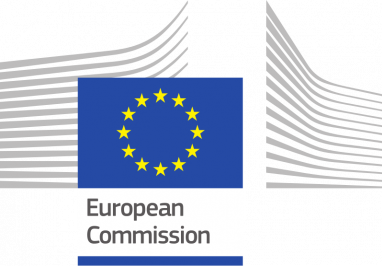
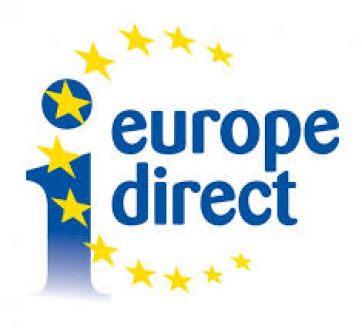
In person:
All over the European Union there are hundreds of Europe Direct information centres. You can find the address of the centre nearest you at: https://europa.eu/european-union/contact_enOn the phone or by email:
Europe Direct is a service that answers your questions about the European Union. You can contact this service:
by freephone: 00 800 6 7 8 9 10 11 (some operators may charge for these calls),
at the following standard number: +32 22999696 or
by email via: https://europa.eu/european-union/contact_en
EU publications
You can download or order free and priced EU publications here Multiple copies of free publications may be obtained by contacting Europe Direct or your local information centre

EU law and related documents
For access to legal information from the EU, including all EU law since 1952 in all the official language versions, go to EUR-Lex at:
http://eur-lex.europa.eu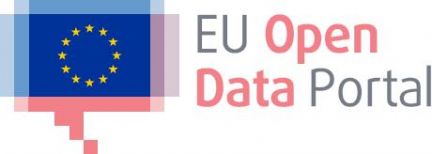
Open data from the EU
The EU Open Data Portal ( http://data.europa.eu/euodp/en)
provides access to datasets from the EU. Data can be downloaded and reused for free, for both commercial and non-commercial purposes.Back to top
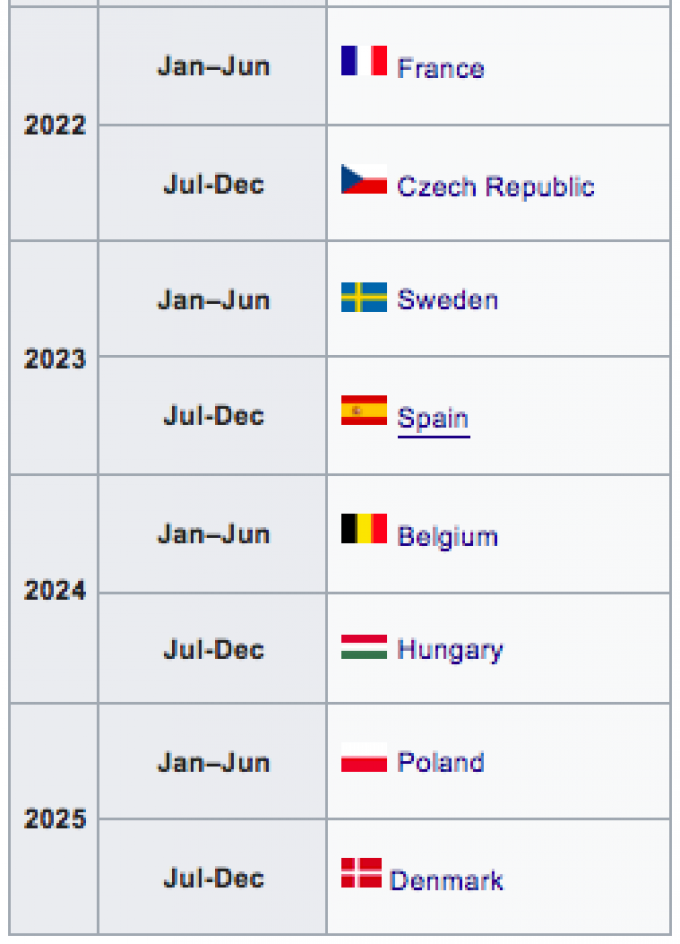
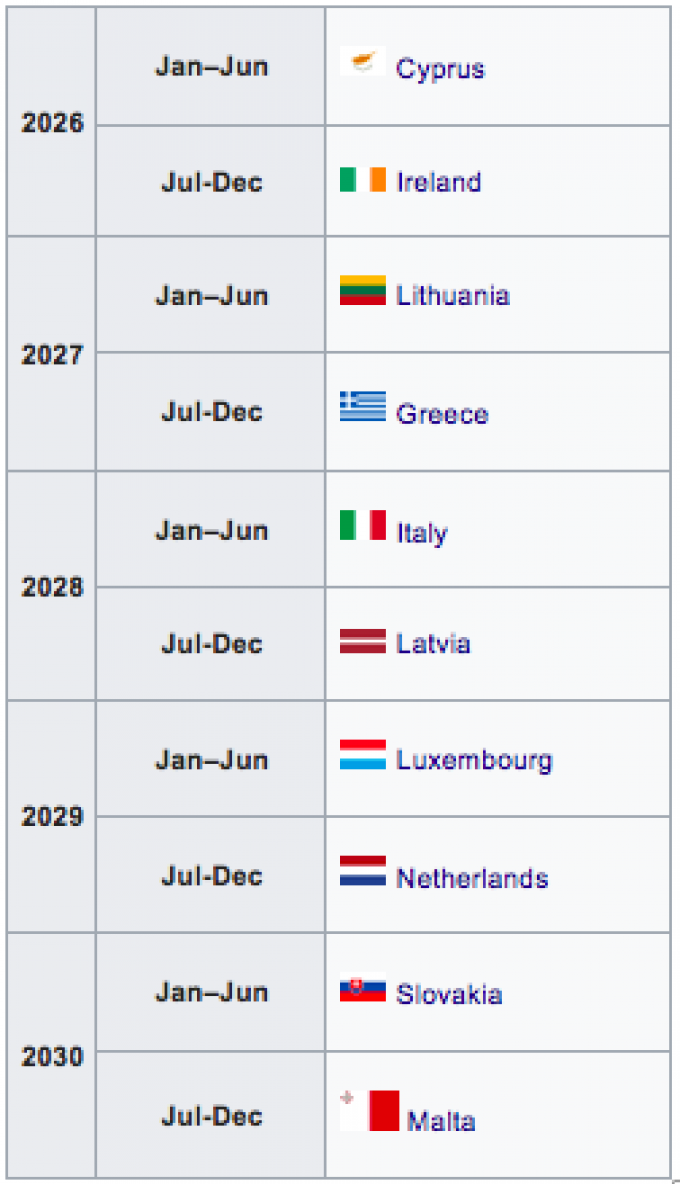
(1)_w1700_h406_1.png)
-
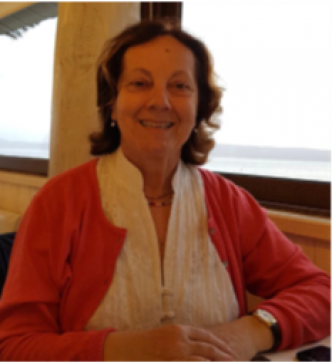
_w332_h406_1.jpg)
_w658_h944_1.jpg)
